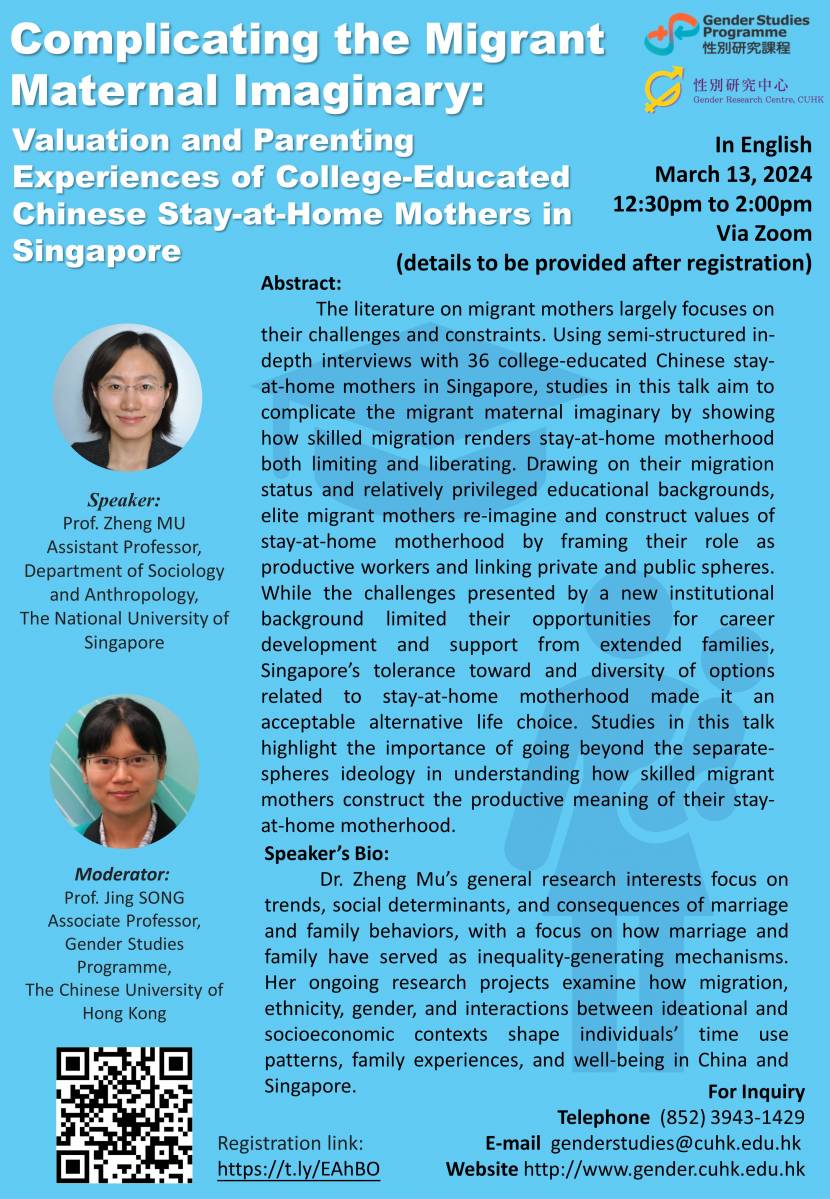


Wednesday Gender Seminar
Abstract:
The literature on migrant mothers largely focuses on their challenges and constraints. Using semi-structured in-depth interviews with 36 college-educated Chinese stay-at-home mothers in Singapore, studies in this talk aim to complicate the migrant maternal imaginary by showing how skilled migration renders stay-at-home motherhood both limiting and liberating. Drawing on their migration status and relatively privileged educational backgrounds, elite migrant mothers re-imagine and construct values of stay-at-home motherhood by framing their role as productive workers and linking private and public spheres. While the challenges presented by a new institutional background limited their opportunities for career development and support from extended families, Singapore’s tolerance toward and diversity of options related to stay-at-home motherhood made it an acceptable alternative life choice. Studies in this talk highlight the importance of going beyond the separate-spheres ideology in understanding how skilled migrant mothers construct the productive meaning of their stay-at-home motherhood.
Speaker's Biography:
Dr. Zheng Mu’s general research interests focus on trends, social determinants, and consequences of marriage and family behaviors, with a focus on how marriage and family have served as inequality-generating mechanisms. Her ongoing research projects examine how migration, ethnicity, gender, and interactions between ideational and socioeconomic contexts shape individuals’ time use patterns, family experiences, and well-being in China and Singapore.

